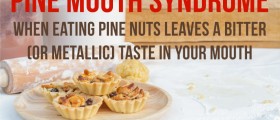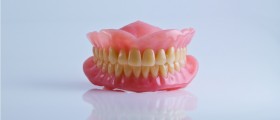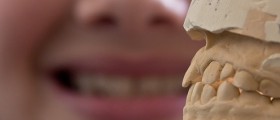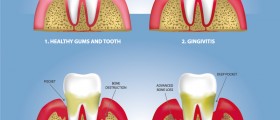A number of conditions can cause a bitter taste in the mouth. These include periodontal disease, decayed teeth, digestive system imbalances, allergic reactions and even certain medication like anti-hypertensives.
Most of these causes, apart from an allergic reaction, will result in a bitter taste that remains in the mouth for a long time and appears slowly over time almost imperceptibly. In case of an allergic reaction, the bitter taste will appear suddenly and then may subside quickly or slowly over a period of time.
A visit to the dentist is advisable in case of a constant bitter taste in the mouth so that all options can be explored.

Periodontal disease
In the case of periodontitis, which is a disease of the gums and the other supporting structures of the teeth, an increase in the production of volatile sulfur compounds causes an alteration of the taste receptors.
Decayed teeth
The presence of a long festering decayed lesion inside the mouth can be a source of constant infection and cause a bitter taste to develop over a period of time. This will usually but not always be associated with other symptoms, like swelling and pain in the affected teeth, as well.
Allergic reaction
This is the most common and most probable cause of a sudden bitter taste in the mouth. The culprit can be anything from recently changed toothpaste to preservatives found in packaged food.
This allergic reaction can affect the taste receptors on the tongue, causing them to swell up and affect the taste receptors as well. It is often almost impossible to isolate the allergen.
Medication
Certain medications can cause such a reaction, but before they are changed or stopped, a visit to the prescribing doctor is a must. Other drugs with a different molecular structure than can usually be prescribed.
Other possible causes
The presence of a bitter taste in the mouth may be a sign of an underlying systemic disorder. Liver and kidney disease can result in a taste alteration as well as bad breath. This is because of the enzymes that are produced as these organs are broken down.
Another less common cause for a taste alteration is heavy metal poisoning. Metals like lead, mercury and bismuth are the most common culprits here. Recent events have shown the presence of lead in everyday items like paints as well as toys. Even in small traces, these metals can produce deleterious effects. This could be due to the fact that once these metals are absorbed into the body's system they are not excreted efficiently.
The treatment is usually short and effective once the cause has been identified and the taste receptors almost always return to normal function.
- Photo courtesy of SteadyHealth
















